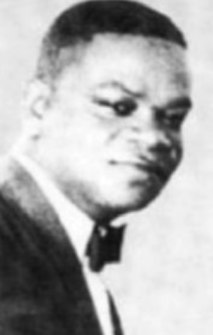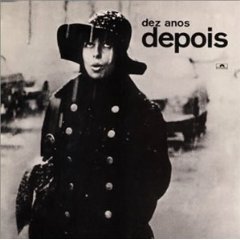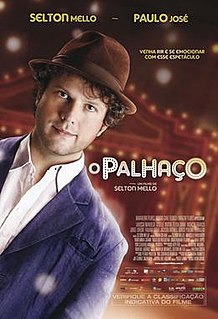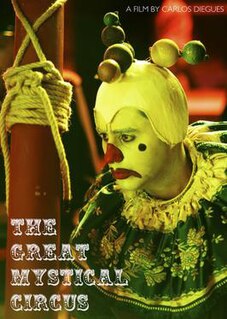This article needs additional citations for verification .(March 2018) (Learn how and when to remove this template message) |
O Grande Circo Mistico (The Great Mystical Circus) is a Brazilian musical first performed in 1983.

Brazil, officially the Federative Republic of Brazil, is the largest country in both South America and Latin America. At 8.5 million square kilometers and with over 208 million people, Brazil is the world's fifth-largest country by area and the fifth most populous. Its capital is Brasília, and its most populated city is São Paulo. The federation is composed of the union of the 26 states, the Federal District, and the 5,570 municipalities. It is the largest country to have Portuguese as an official language and the only one in the Americas; it is also one of the most multicultural and ethnically diverse nations, due to over a century of mass immigration from around the world.

Musical theatre is a form of theatrical performance that combines songs, spoken dialogue, acting and dance. The story and emotional content of a musical – humor, pathos, love, anger – are communicated through words, music, movement and technical aspects of the entertainment as an integrated whole. Although musical theatre overlaps with other theatrical forms like opera and dance, it may be distinguished by the equal importance given to the music as compared with the dialogue, movement and other elements. Since the early 20th century, musical theatre stage works have generally been called, simply, musicals.
Originally intended as a ballet for the Ballet Teatro Guaira, the story was inspired by the poem of Parnassianist/modernist Jorge de Lima and incorporates music, ballet, opera, circus, theater and poetry. It tells the story of a great love affair between an aristocrat and an acrobat and the saga of the Austrian family that owned the Circus Knieps, and their adventures around the world during the early 20th Century.
Parnassianism was a French literary style that began during the positivist period of the 19th century, occurring after romanticism and prior to symbolism. The style was influenced by the author Théophile Gautier as well as by the philosophical ideas of Arthur Schopenhauer.

Modernism is both a philosophical movement and an art movement that, along with cultural trends and changes, arose from wide-scale and far-reaching transformations in Western society during the late 19th and early 20th centuries. Among the factors that shaped modernism were the development of modern industrial societies and the rapid growth of cities, followed then by reactions of horror to World War I. Modernism also rejected the certainty of Enlightenment thinking, although many modernists also rejected religious belief.
Jorge Mateus de Lima was a Brazilian politician, physician, poet, novelist, biographer, essayist, translator and painter. His poetry was initially composed in Alexandrine form, but he later became a modernist.
Early success saw a tour around Brazil and Portugal, selling over 200,000 tickets to over 200 performances.

Portugal, officially the Portuguese Republic, is a country located mostly on the Iberian Peninsula in southwestern Europe. It is the westernmost sovereign state of mainland Europe, being bordered to the west and south by the Atlantic Ocean and to the north and east by Spain. Its territory also includes the Atlantic archipelagos of the Azores and Madeira, both autonomous regions with their own regional governments.
The soundtrack is composed by Chico Buarque and Edu Lobo. [1]
A soundtrack, also written sound track, can be recorded music accompanying and synchronized to the images of a motion picture, book, television program, or video game; a commercially released soundtrack album of music as featured in the soundtrack of a film, video, or television presentation; or the physical area of a film that contains the synchronized recorded sound.

Francisco "Chico" Buarque de Hollanda, popularly known simply as Chico Buarque is a Brazilian singer-songwriter, guitarist, composer, playwright, writer and poet. He is best known for his music, which often includes social, economic and cultural commentary on Brazil.
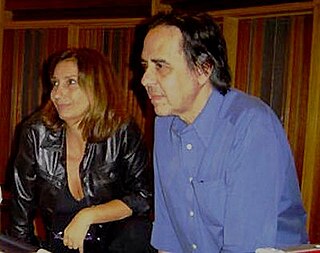
Eduardo de Góes "Edu" Lobo is a Brazilian singer, guitarist, and composer.


